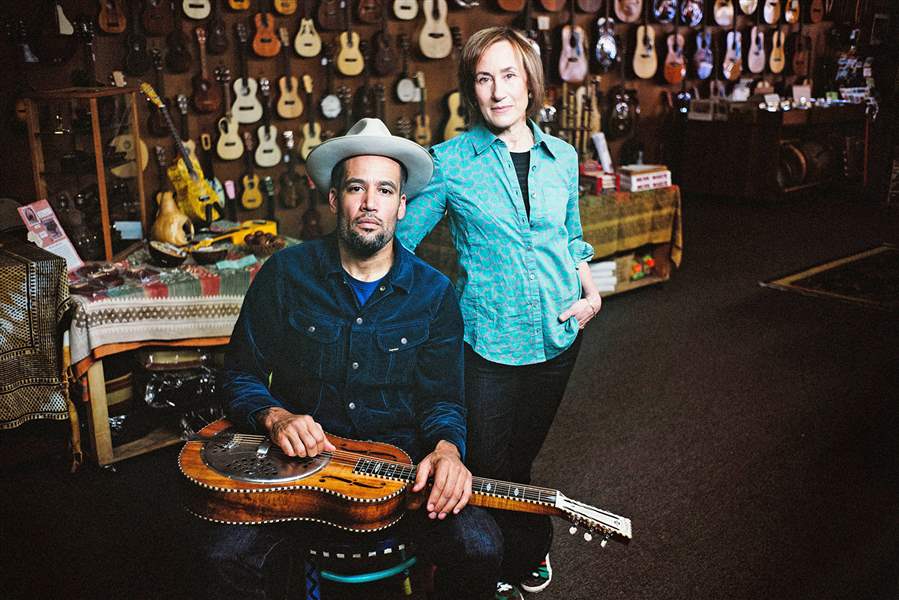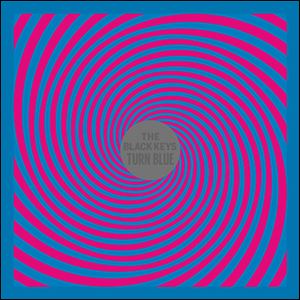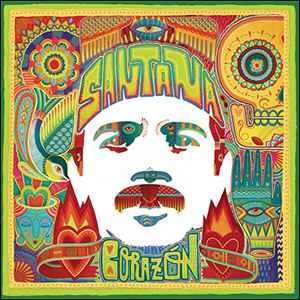
PEACH WEEKENDER
Sounds: Ben Harper’s ‘Childhood Home’ a tribute to mom
5/15/2014
Ben Harper and his mother Ellen release an album together.

Ben Harper and his mother Ellen release an album together.

CHILDHOOD HOME
Ben and Ellen Harper
Instead of buying her flowers for Mother's Day, Grammy-winning singer-songwriter Ben Harper paired up with his mom, multi-instrumentalist Ellen Harper, for a beautiful folk album, his 12th studio recording. It's a project he said he wanted to do for years.
The 10 songs are originals, six written by Ben and four by Ellen. The disc has a warm, earthy feel to it for different reasons; the two celebrate and shine light on the bonds of family and friends, and the struggles of overcoming obstacles in the face of adversity amid modest or dirt-poor surroundings. They balance life's pain, joy, heartache, and its simple — often overlooked — pleasures, all steeped in a rich sense of home.
Childhood Home has its sentimental moments, but avoids sappy pitfalls and, like all great music, bares a lot of heart and soul. The final song, a simple-yet-highly introspective slow number called How Could We Not Believe clings to your gut like musical gravy. The duets are mostly harmonized around acoustic guitars with a stripped-down feel that Ben says is reminiscent of early Elvis, a sound that is, in his opinion, more soul, California, folk rock, and American than traditional Americana. But certainly, there's as much reason to compare this album to folk icons Peter, Paul & Mary as there is early Elvis, and there are moments of bluegrass giving the disc more of a wayward, backwoods country feel. But whatever you call Childhood Home, consider it a loving collaboration and Ben's embrace of Ellen, a single mother, for this Mother's Day.
Ben comes from a musical family: His maternal grandparents in 1958 established The Folk Music Center and Museum in Claremont, Calif., a venue that put Ben in touch with countless instruments and brilliant artists such as Taj Mahal and Ry Cooder, who became almost extended family members. But as this fine album shows, Ben's greatest musical influence and mentor was likely Mom.
— TOM HENRY

TURN BLUE
The Black Keys (Nonesuch Records)
It's been four years and several Grammy wins since the Black Keys' breakthrough album, Brothers, and the kings of alternative-rock show no sign of letting their hard-earned crown slip.
Turn Blue, their eighth album and follow-up to 2011's platinum-selling El Camino, is arguably their best yet. Superproducer Brian "Danger Mouse" Burton is at the helm once again, adding layers of complex orchestration to singer-guitarist Dan Auerbach and drummer Patrick Carney's trademark blues-rock backbeat.
The album kicks off with the jaw-dropping Weight of Love — a seven-minute odyssey demonstrating the high confidence coursing through the band's recording studio last summer. Starting with a simple acoustic guitar line, the hushed opening builds into an epic meditation on love and loss, with Auerbach's intertwining guitar solos dissolving in a haze of reverb; the sound of a band operating at the peak of its power.
The stunning calling card is followed by three songs that rank among the best in the Keys' canon, including the menacing title track ("I really don't think you know, there could be hell below," croons Auerbach over an echo-soaked piano) and omnipresent lead-off single, Fever, which couples a synth riff and bone-crunching bass. Elsewhere, distorted tribal drums and a snaking guitar line mark spacey rocker It's Up to You Now out as a future single — an explosion of Delta blues by way of Saturn.
It's not all smooth sailing. Auerbach's falsetto vocals on lovelorn ballad Waiting on Words lack emotional punch, while the funk bass line repeated throughout 10 Lovers is stymied by a keyboard riff so high-pitched it will set any dog within a mile radius running for cover.
Thankfully, the Keys immediately recover their sure footing, closing the album with two tracks at opposite ends of the band's musical spectrum. Jimi Hendrix's spirit comes through in the psychedelic guitar workout In Our Prime, while album closer Gotta Get Away is an unashamedly pop-y track destined to become a summer anthem.
The former Akron-based band's evolution from a simple guitar-and-drums duo to a fully formed, Grammy Award-winning stadium rock act is remarkable. Their once limited black-and-white palette now boasts hundreds of contrasting colors — long may it continue.
— MATTHEW KEMP,
Associated Press

CORAZON
Santana (RCA /Sony Latin Iberia)
Many music critics are referring to Santana’s latest release Corazon as the group’s first “Latin” album; which proves, 1) they didn’t become familiar with Santana’s music until the 1999 multimillion selling Supernatural and 2) many of today’s music “experts” still don’t know jack about Latin music.
In truth Corazon is a fusion of Latin music, pop, rock, salsa, hip-hop, folk, reggae, and bachata.
This time around 10-time Grammy Award-winning guitarist Carlos Santana and crew team up with some of Latin America’s hottest stars, including Brazilian rock star Samuel Rosa, guitarist and lead singer for the group Skank. Rosa challenges the band to jam harder than they have in decades, while also staying true to their Latin roots and rhythms: congas and percussion, timbales and the trademark wailing of Carlos’s guitar. The first single from the album features collaboration with Ziggy Marley, who channels the spirit of his legendary father, Bob Marley as he sings the optimistic Iron, Lion, Zion.
Other guest include international stars Juanes, the always energetic Los Fabulosos Cadillacs, Romeo Santos, who contributes the heartfelt Margarita, Gloria Estefan who delivers the sultry ballad Besos de Lego, and Pitbull, who revisits Santana’s version of Oye Como Va, originally released in 1970; a reminder that Santana has been playing Latin music since their self-titled debut in 1969.
— FEDERICO MARTINEZ